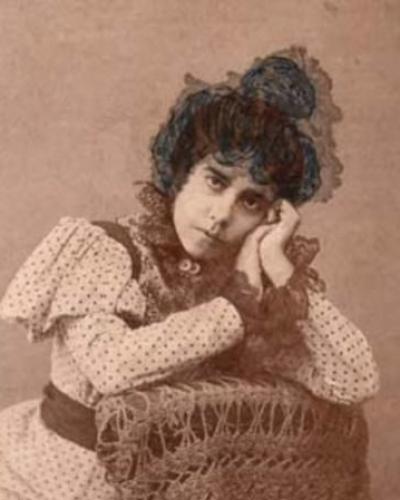Havana, February 20 (RHC) – 2020 marks the 124th anniversary of the death of inspired writer and creative artist Juana Borrero. From her first years, which lasted only two decades, the young Havana girl stood out in the creation of beautiful paintings, poems and a wide epistolary.
Among the first of her poems that came to light was Vespertino (Afternoon), followed by Rimas y otros poemas (Rhymes and other works), released in the volume titled Grupo de Familia, Poesías de los Borrero (Family Group, Poetry of the Borrero’s). Experts in the extensive poetic production of writer Juana Borrero have said that this productive creative stage wound up with the poem titled Última Rima (Last Rhyme), considered the most beautiful and complete among her inspired poems.
Her creative work
In 1901, Juana Borrero’s father, Esteban Borrero, returned to the mansion known as Quinta de Zayas in Puentes Grandes, in front of La Papelera (The Paper Mill). There Juana had shown her emotions in images and literary works. Painter Dolores Desvernine gave her the first lessons, and at the age of 9 Juana’s father took her to the San Alejandro Academy, receiving classes from Luis Mendoza and Antonio Herrera. About Juana Borrero, her friend, poet Julián del Casal, said in his book Bustos y Rimas (Busts and Rhymes): ‘To understand the value of her paintings, some of them must be contemplated’. ‘A short series of lessons received by different teachers have been enough so that, illuminated by her genius, she launched herself to the conquest of all the secrets of pictorial art.
Beautiful love letters
The poetic work and epistolary of Juana Borrero, born on May 18, 1877 in Havana, came to our days thanks to the care of several close friends. In a document signed in 1961 by her sister, Mercedes Borrero, she stated that the letters sent by Juana from her exile in Key West to her beloved Carlos Pío, were sewn by his aunt, Piedad Hernández, inside the young man’s campaign jacket, when he came to Cuba to join the Cuban Liberation Army against Spanish colonial rule. Carlos Pío fell in combat near the Santa Rosa sugar mill, which belonged to the family of patriot Marta Abreu, located near Sancti Spíritus, in the former province of Las Villas. The story of Juana Borrero and CarlosvPío is known as one of the most beautiful love stories in Cuban history. (Source: Radio Reloj)


